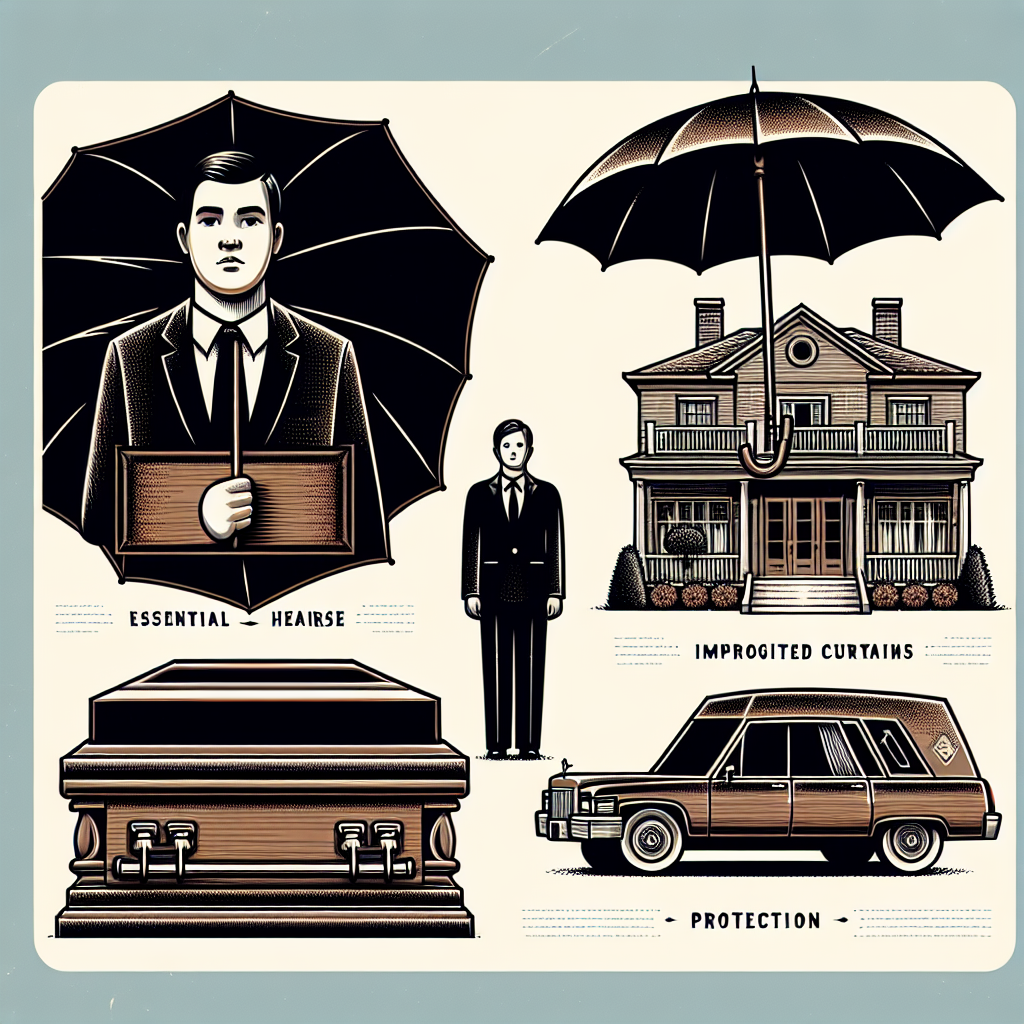Filed under Home Insurance on
Guide to Funeral Home Insurance Coverage Essentials

Funeral homes, much like other businesses, face unique challenges and risks. Essential in serving communities during their most vulnerable times, these establishments require comprehensive protection. That’s where funeral home insurance coverage comes in—a specialized form of business insurance designed to address the specific needs of funeral service providers.
Understanding Funeral Home Insurance Coverage
Funeral home insurance coverage is a tailored set of policies aimed at safeguarding funeral service businesses from potential lawsuits, property damage, and other unforeseen incidents. It ensures that operations can continue smoothly even when faced with unexpected events.
Why Is Funeral Home Insurance Coverage Essential?
With the sensitive nature of the services provided, funeral homes are exposed to various risks, from property damage to liability issues. Comprehensive insurance coverage helps mitigate these risks, protecting both the business and its clientele.
Types of Funeral Home Insurance Coverage
Understanding the different components of funeral home insurance coverage is crucial for selecting the right policy. Here are some core elements of a robust package:
General Liability Insurance
This is a fundamental coverage that protects against claims of bodily injury or property damage to third parties. In the context of a funeral home, such claims could arise during memorial services or visitations held on the premises.
Professional Liability Insurance
Also known as Errors and Omissions insurance, this coverage protects against claims of negligence, misrepresentation, or inaccurately rendered services. It's particularly important for funeral directors who offer guidance and support to grieving families.
Property Insurance
Protecting the physical assets of a funeral home, property insurance covers damages to buildings, equipment, and other physical property due to incidents like fire, theft, or natural disasters.
Commercial Auto Insurance
Funeral homes often use vehicles for transporting deceased individuals and bereaved family members. Commercial auto insurance covers these vehicles, ensuring protection against accidents and liability.
Workers’ Compensation Insurance
This insurance is mandatory in most locations and provides coverage for medical expenses and lost wages if employees are injured on the job. Given the physical and emotional demands of the funeral industry, it's a critical component of funeral home insurance coverage.
Business Interruption Insurance
In the event of a temporary closure due to unforeseen circumstances, this coverage helps offset lost income and operational expenses, allowing funeral homes to maintain financial stability.
Key Considerations When Choosing Coverage
Selecting the right funeral home insurance coverage involves evaluating several factors unique to each business. Here are some considerations:
Assessing the Value of Assets
- Conduct a thorough assessment of property value, including buildings, furnishings, equipment, and vehicles.
- Regularly update these valuations to ensure adequate coverage.
Understanding Potential Liabilities
- Identify potential risks associated with the services offered, including any specialty services that might require additional coverage.
- Stay informed about local regulations and industry standards to minimize exposure to liability.
Customizing the Policy
- Work with insurance professionals who understand the nuances of the funeral industry to tailor a policy that meets specific needs.
- Consider bundling various insurance types to maximize coverage and potentially reduce costs.
The Role of Trends and Emerging Risks
The funeral industry is not static; it evolves with cultural shifts and technological advancements. Here’s how these trends can impact funeral home insurance coverage:
Increasing Demand for Green Funerals
As environmentally conscious options gain popularity, policies must adapt to cover unique risks associated with these services, such as regulatory compliance for new environmentally friendly processes.
Technology Integration
The integration of digital platforms for services like virtual memorials and online planning can introduce cyber risks. Cyber liability coverage is becoming an essential addition to comprehensive funeral home insurance.
Pandemic Preparedness
The COVID-19 pandemic highlighted the need for insurance policies that address health crises, influencing funeral homes to seek expanded coverage for such events.
Expert Advice on Optimizing Coverage
Securing the right funeral home insurance coverage is a collaborative process that benefits from professional guidance. Here are expert recommendations:
Consult with Industry Specialists
Engage insurance agents who specialize in funeral home insurance coverage. Their insight into industry-specific risks makes them invaluable resources for customization.
Regular Policy Reviews
Schedule annual policy reviews to adjust coverage as the business grows or as new risks emerge, ensuring sustained protection.
Ongoing Staff Training
Implement regular training for staff on safety protocols and risk management to reduce the likelihood of incidents that could result in insurance claims.
Final Thoughts
Funeral home insurance coverage is not just about compliance—it's a strategic investment in the sustainability and resilience of a business. By understanding the various coverage options and staying informed about industry trends, funeral home directors can create a robust insurance plan that supports their mission of providing compassionate care during life's most challenging moments.
Whether you’re entering the funeral service sector or reevaluating current policies, prioritizing comprehensive insurance coverage will empower your business to face uncertainties with confidence.





